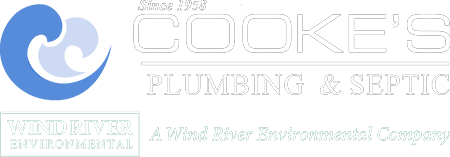Protect Your Septic Tank from Hurricane Flooding
Over the last century or so, at least 12 hurricanes of Category 2 or higher have landed in Palm Beach, St. Lucie and Martin counties. These storms inflicted billions of dollars in damage and the worst of them dropped 13 inches in rain!
Needless to say, much of the devastation came from the ensuing flooding and storm surge during and after the storm.
Most Floridians accept such risks as the occasional cost of living in the Sunshine State but there are ways to lessen that cost. Those homeowners with septic tanks in Port St. Lucie, Stuart, Jupiter and surrounding areas can take simple, proactive measures to maintain their tanks intact following the drenching rains that accompany hurricanes.
- Refrain from using the septic system immediately following the storm. The lines might be damaged from the hurricane and the wastewater can not move through the drain field until much of the flood water and storm surge subsides.
- Avoid a pump out of the tank if the surrounding ground is drenched. While septic tank pumping might seem like a logical solution, it can in fact cause the tank to rise from its fixed position. In so doing, the lifted tank might break outlet and inlet pipes. Simply plugging basement drains and minimizing water usage is a better course of action.
- Wait until the water level in the drain field is lower than the level around the house. At this point you can better determine if any damage has occurred. If there is evidence of settling or the tank will not receive wastewater, seek professional septic service.
- Take caution in trying DIY repairs or cleaning with septic systems. They emit methane, hydrogen sulphide (H2S), carbon dioxide, sulphur dioxide, ammonia, nitrogen dioxide and some carbon monoxide. These noxious gases can cause illness or worse.
- If discharge is backed up and entering your home, clean it up promptly and decontaminate the floor thoroughly.
- When conditions permit, pump out the septic system as soon as possible. Pumping the tank and lift station get rid of all the sediment and detritus that flooding deposits. Soils in St. Lucie, Martin and Palm Beach counties tend to be sandy, moving quickly with water flow.
- Take care not to operate heavy equipment in the drain field vicinity. Compacting the soil reduces its absorption capacity.
- Make sure all the electrical connections to the system are intact before restoring the power. In addition, manhole covers should all be tightly in place.
- Do not overwhelm the system with too much, too soon. Until the water table stabilizes to an acceptable level, the septic system is vulnerable.
Above all, do not hesitate to contact a reliable, licensed septic service for any repairs, adjustments or inspections. Hurricane damage and flooding is sometimes evident, sometimes subtle.
Professional technicians can identify and fix them efficiently and safely. “Quick…Call Cooke’s” at 772-287-0651 or click here for fast, professional septic service or any plumbing issue.

